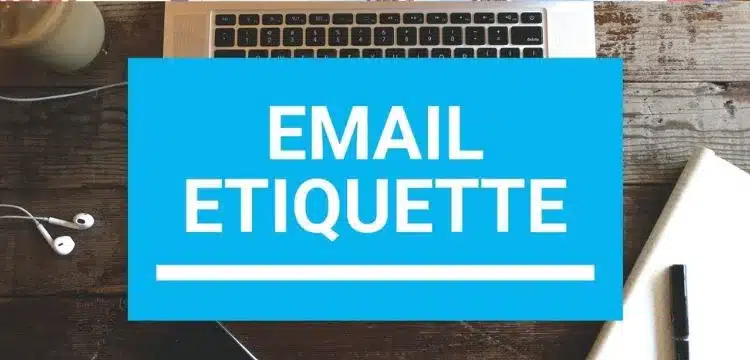[vc_row][vc_column][vc_column_text dp_text_size=”size-4″]Starting a new job can be exciting and a little overwhelming, especially for recent graduates. One aspect of professional life that often requires attention is email communication. Emails are a common way to interact with colleagues, supervisors, and clients in the workplace. Mastering email etiquette is essential for making a positive impression and building successful relationships in your new role.
Using Professional Language: Firstly, it’s important to use professional language in your emails. This means avoiding slang, abbreviations, or casual language that might not be suitable for a work setting. Instead, use clear and respectful language that reflects your professionalism.
The Importance of Clear Subject Lines: When composing an email, always include a clear subject line. This helps the recipient understand the purpose of your message and prioritize it accordingly. A subject line should be concise and informative, summarizing the content of the email.
Addressing Recipients Appropriately: It is another key aspect of email etiquette. Begin your email with a proper salutation, using the recipient’s name and appropriate title (e.g., Mr., Ms., Dr.). If you’re unsure of their preferred title, using their full name is a safe bet.
Keeping Emails Brief and to the Point: Keep your emails brief and to the point. Avoid including unnecessary details or confused paragraphs. Instead, focus on the main purpose of your message and communicate it concisely. Using short paragraphs and bullet points can help improve readability.
Proofreading: Before sending an email, always proofread it for spelling, grammar, and punctuation errors. Typos and mistakes can undermine your professionalism, so take the time to review your message before hitting send.
Responding Promptly: Respond to emails promptly, ideally within 24 to 48 hours. Even if you can’t provide a full response immediately, acknowledge receipt of the email and indicate when the recipient can expect a more detailed reply.
Including a Professional Email Signature: Include a professional email signature with your full name, job title, company name, and contact information. This makes it easy for recipients to identify you and reach out if needed.
Ending with a Formal Closing: End your email with a formal closing, such as “Sincerely,” “Best regards,” or “Thank you,” followed by your full name.
Being Mindful of Tone: Be mindful of your tone in emails and strive to maintain a courteous and respectful tone at all times. Avoid sarcasm or humor that may be misinterpreted in written communication.
By following these email etiquette guidelines, new graduates can effectively communicate with colleagues, supervisors, and clients in a professional manner, contributing to their success in the workplace.[/vc_column_text][/vc_column][/vc_row]











